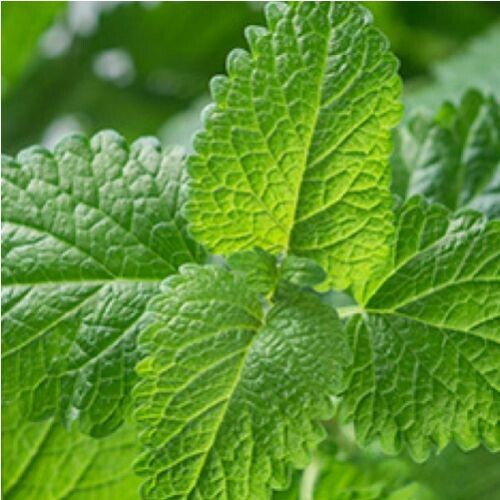ESTABLISHED 2006
Over 50,000 Orders Shipped
NEXT DAY UK DELIVERY
Worldwide Shipping 3-5 Days
SUBSCRIPTIONS
Subscribe & Save!
RATED ★ ★ ★ ★ ★
1100+ 5* Reviews
LEMON BALM (Melissa officinalis)
Available either as a dried herb or herbal tincture.
Please note this is a nutritional, functional horse food supplement and not veterinary medicine. See Dr Kellon's Horse Sense - 'Nutrition is not 'Alternative' Therapy.
Tincture
Our human-grade, certified organic tinctures give you a ready-to-absorb potent source of phytonutrients at the highest-strength available, for immediate absorption straight into the bloodstream and to the body’s cells.
~ 100% certified organic pure tincture
Melissa officinalis (Lemon Balm) Herb, Cold Macerated 1:2 25%, Fresh Cultivated
~ Feed Guide
- 6ml/100kg bodyweight, daily in feed.
- Always shake the bottle to disperse any sediment.
- 3-year shelf-life.
Dried Herb
Produced to ecological standards and free from agro-chemicals.
~ Certified organic dried herb
Melissa officinalis (Lemon Balm) Herb, Cultivated/Wild Harvested , Origin Bulgaria
~ Feed Guide
- 5g/100kg bodyweight per day, thus for an average 500kg horse add 25g daily to feed.
- 1-year shelf-life.
Functional Nutritional Value
Constituents: Volatile oils: (0.06-0.375%): monoterpenes (>60%) including citronellal, citral (geranial and neral), β-ocimene; sesquiterpenes (>35%) including β-caryophyllene, germacrene D . Flavonoids (0.5%): glycosides of luteolin, quercetin, apigenin, kaempferol. Polyphenols: rosmarinic acid, chlorogenic acid, caffeic acids, protocatechuic acid, hydroxycinnamic acid derivatives, metrilic acid, tannins. Triterpenic acids. Ursene triterpene glycosides: melissiosides A-C. Vitamin C and carotenoids.
NB. Our range of botanicals are all grown, harvested and dried without the use of agri-chemicals, non-irradiated and GMO free - see our Quality page for Quality Management & Certification Documents. Laboratory tested for identification and compliance to the British and European Pharmacopoeia standards, and are human grade. Please be aware that if you're purchasing our dried botanicals for human use, our dried range is cut to appropriate sizes for feeding to horses.
More ...
Lemon balm is a cooling nervine with a strong lemony smell and a milder lemony but deliciously pleasant flavour. This popular mint family plant was a common herb found in potpourri and that its name refers to its ‘honeyed sweetness’, with Shakespeare describing it as a strewing herb in The Merry Wives of Windsor .
Lemon balm makes a delicious tea, is even lovelier when infused with honey, and is a well-known culinary herb. It’s uses have been documented since before Roman times, with Pliny noting that bee hives rubbed with lemon balm would keep the swarms there, a practice that stayed with beekeepers well into the 20th century. Research even shows that pheromones excreted by the worker honey bees’ scent glands contain the compounds citral, geraniol, and nerolic acid, which are also found in lemon balm, and could explain the attraction.
Despite the herb’s longstanding use, the European Medicines Agency only lists three well-documented traditional applications of lemon balm, which are to soothe mild symptoms of mental stress, to support healthy sleep, and to ease mild gastrointestinal upset. The ESCOP (European Scientific Cooperative on Phytotherapy) monographs approve the herb’s internal use for minor spasms and other digestive issues as well as to ease irritability and restlessness, and its external application in cold sores.
It’s probably best known as a nervine tonic with anxiolytic actions - John Evelyn, a writer of the 17th-century said Lemon Balm “comforts the heart and driveth away melancholy and sadness”, and another herbalist whose name I can’t remember said that it “brings joy into the melancholy”. Either way, it rates highly with me as a nervine, and a delicious tea.
Historically, the ancient Greek physician Dioscorides suggested the leaves should be decocted in wine and consumed or applied externally as a poultice for scorpion, spider, and dog bites. It was also used as a mouth rinse to ease toothache, and drunk as a decoction for gastrointestinal issues such as dysentery, mushroom poisoning, and stomach cramps. Lemon balm syrup was suggested to ease difficult breathing, while the herb mixed with salt was applied topically to cleanse ulcers and quirkily, reduce goiter.
It's also thought that lemon balm can be used as a diaphoretic in the form of a hot tea to promote perspiration, and it’s been indicated as a herb for fevers accompanied by nervousness and depression following exhaustive fevers or when digestion has been irritated. The Romans found it an excellent soother for bee and wasp stings, and the leaves’ juice mixed with honey to clear the eyes.
An absolute given, though, is that lemon balm has been used to lift the spirits for many centuries. Truly a balm to the spirits, lemon balm is used to soothe anxiety, nervousness, and depression, sometimes called a nervous system trophorestorative, indicating that over time it will tonify, nourish, and restore balance to the body.
We blend Lemon Balm into our ColicTonic, MellowMare, & StressTonic.
Safety
- Due to lemon balm’s mild thyroxine-inhibiting effect, in cases of thyroid conditions, always consult your vet before feeding.
The EquiNatural Blog

Menu
Get in Touch
+44 01761 325032
mail@equinatural.co.uk
Unit 4 Rookery Farm, Radstock, BA3 4UL
Terms & Conditions
Privacy Policy
Legal Notice
Stay Connected
Subscribe to our emails for the latest insights, updates, tips, and offers.
Contact us
Thank You for Joining Us!
We’re so pleased to welcome you to the EquiNatural community. Keep an eye on your inbox for updates, tips, and exclusive offers to help your horse thrive naturally.
Warm wishes
The EquiNatural Team
Please try again later
Any information contained within is not intended to replace veterinary or other professional advice.
*
Trading Standards EC Feed Hygiene Regulation (183/2005), Registration No. GB280/4203
* HACCP certified facility (an international standard that ensures we meet food safety standards)
* Registered in England. Company Number 11075894 - Reg'd Office: Unit 10 Rookery Farm, Radstock BA3 4UL
* VAT No. GB 310214964




